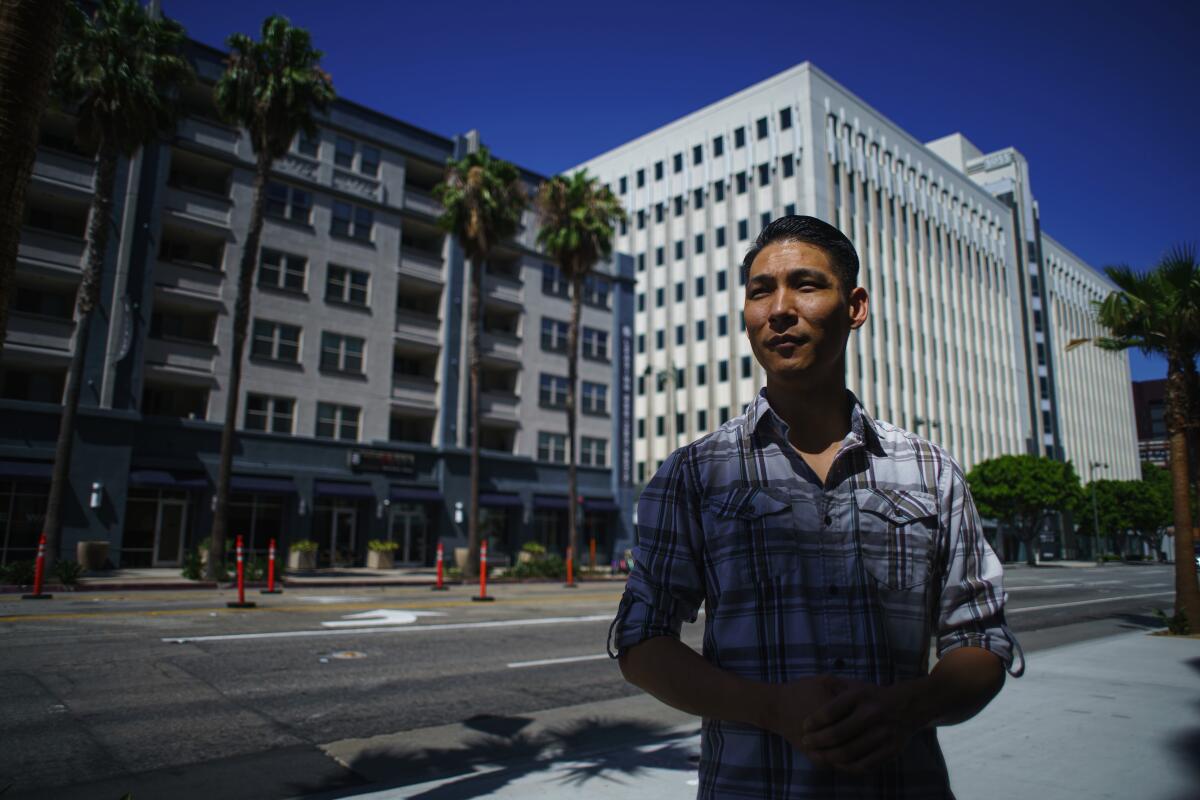First Starbucks, then Amazon, now a Korean BBQ restaurant union. Wage workers know they deserve more

- Share via
Three years ago I wrote about labor violations at Genwa, a Koreatown barbecue restaurant where a plate of short ribs cost $75.
The California labor commissioner’s office found that the restaurant’s owners were systematically underpaying their employees and ordered the restaurant to repay more than $1.4 million in stolen wages.
And now, as my colleague Jeong Park reports, Genwa’s workers have created what may be the first union ever at a Korean barbecue restaurant. Genwa’s employees now make a minimum wage of $20 an hour and can be reimbursed for healthcare costs.
What’s happening at Genwa is happening across the country. Starbucks outlets are unionizing, including four locations in California, reports my colleague Suhauna Hussain. A group of workers at a Staten Island Amazon warehouse voted to unionize, the first example of successful labor organizing at the online retail giant.
It’s about time the American wage worker embraced the idea that their work is undervalued. These unprecedented waves of unionizing suggest that the social contract underlying our economy is up for renewal, and wage workers want and deserve more. And it will be through unions that we ensure that essential workers will be treated as though they are truly essential.
“Even good policy is not enough. The only thing standing between tyranny of a workplace and its workers is a union,” said Jose Roberto Hernandez, chief of staff at KIWA, the Koreatown organization that helped bring about labor reforms at Genwa.
Pandemic lockdown conditions have given us a vivid look at the risks that day laborers, domestic workers and service industry employees face. And their work has only become more valuable, since it has become clear that no one can work from home unless wage workers leave home to go to work.
Yet with a recession looming, their compensation remains at poverty levels. And with inflation, rising gas prices and a runaway housing market, minimum wage buys less than ever.
“People erroneously believe there’s a shortage of workers. There’s a shortage of good jobs,” said Kent Wong, director of the UCLA Labor Center. “You have corporations making massive profits during pandemic conditions, and then you have so-called essential workers putting themselves at risk for a poverty wage.”
Southern California used to have a lot of those so-called good jobs. Manufacturing jobs lifted many families out of poverty and helped create a middle class in Los Angeles. Service and retail jobs are a poor replacement for those manufacturing gigs, Wong said.
Wong has observed waves of unionization among workers in the healthcare, cannabis, ride-share and fast-food industries.
Unions at restaurants are especially rare. About 10% of American workers are unionized, but for the food and beverage industry, that figure is around 3%, according to a 2021 U.S. Bureau of Labor Statistics survey.
The national hotel and restaurant employees union has typically focused on hotels, because restaurants are more difficult to unionize. Wong cited rapid turnover, a large immigrant workforce and the sheer number of employers as barriers to unionization.
And Genwa’s union is also unusual because it’s an example of an immigrant business owner and an immigrant work force agreeing to a labor contract.
Hernandez said that once the pandemic hit, Genwa’s workers and their employer realized that they had a shared goal of reopening the restaurant. Genwa’s owners, Jay and Kin Kwon, did not oppose the union and have attempted to make changes according to employee feedback.
The Genwa case is transformative because “it just shows that it can be done,” said Diep Tran, a chef who closed her restaurant Good Girl Dinette in 2014 after a rent hike.
Running a restaurant was like “fighting a losing battle to offer pay that is nowhere near living wages for this city,” Tran said.
Without support from big investors, Tran paid her workers far above minimum wage and tried to offer benefits. Even as their rent was hiked, Tran refused to cut wages. Restaurants, when squeezed economically, tend to first cut costs by skimping on labor and wages, even while maintaining relatively huge levels of spending on alcohol, marketing and branding.
Labor simply needs to be a higher priority, Tran said.
“This is a start,” she said. “I really want for some ways for employers to take a moment. Take a breath before you complain about staff and hiring and do some self-reflection about what you’ve done to help alleviate the problem.”
More to Read
Sign up for Essential California
The most important California stories and recommendations in your inbox every morning.
You may occasionally receive promotional content from the Los Angeles Times.











